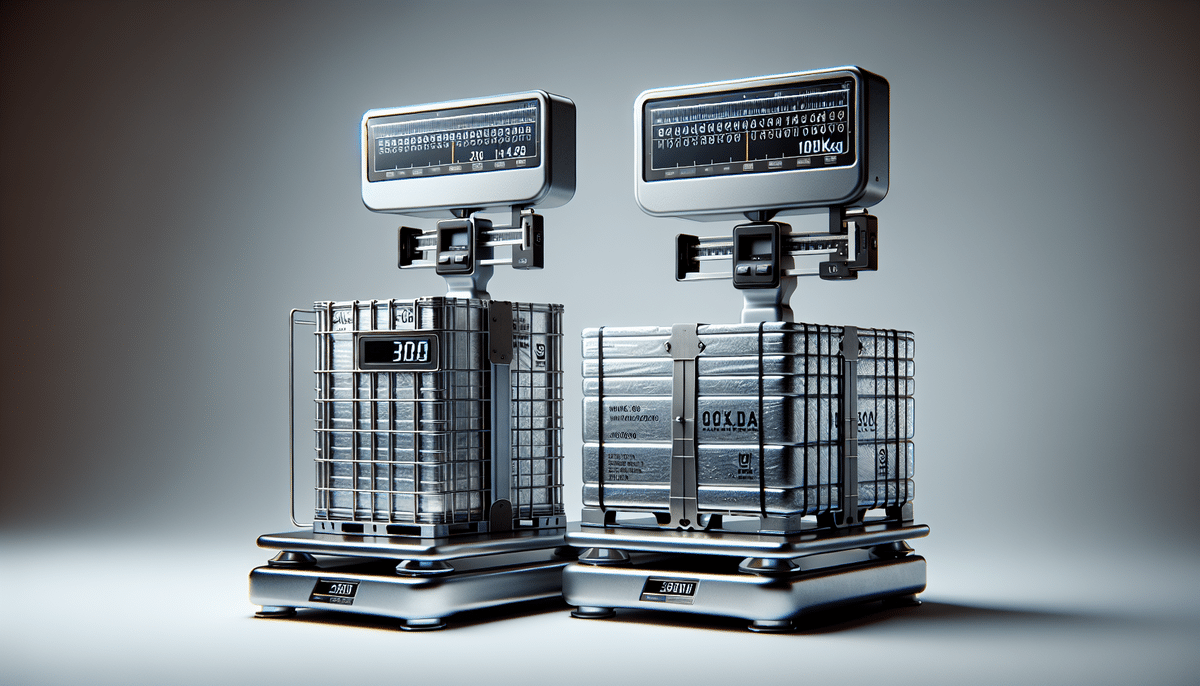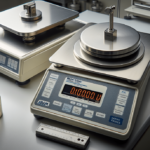Adam Equipment CPWplus vs Brecknell DCSB: Comprehensive SEO Comparison
In the realm of industrial weighing equipment, the Adam Equipment CPWplus and the Brecknell DCSB stand out as two of the most reliable and accurate scales available. While both offer superb precision, they differ significantly in features, design, and pricing. This article provides an in-depth analysis of these two models, comparing their accuracy, weighing capacity, display options, durability, ease of use, and customer feedback to help you determine which scale best suits your needs.
Introduction
The Adam Equipment CPWplus and the Brecknell DCSB are mid-range scales designed for industrial applications, capable of measuring from a few grams to several kilograms with high accuracy. Both models are portable due to their built-in batteries, allowing for flexible usage in various environments. However, subtle differences set them apart:
- Weighing Platform: The CPWplus features a larger platform, ideal for bulkier items.
- Weight Capacity: The CPWplus boasts a higher maximum capacity, suitable for heavier loads.
- Display: The CPWplus includes a backlit display for low-light conditions, whereas the DCSB offers a more compact design for easy storage.
Features of Adam Equipment CPWplus
The Adam Equipment CPWplus is renowned for its versatility and robustness, making it a preferred choice in industries such as manufacturing, shipping, and food processing. Key features include:
- Steel Platform: Spacious, durable, and easy to clean, with a capacity of up to 300kg.
- Backlit LCD Display: Ensures readability in various lighting conditions.
- Advanced Functions:
- Parts Counting: Accurately count small components.
- Checkweighing: Alerts for weights outside pre-set limits.
- Percentage Weighing: Calculate the percentage of a sample within the total weight.
These features enhance the CPWplus’s applicability across different industrial settings, ensuring precise and efficient operations.
Features of Brecknell DCSB
The Brecknell DCSB offers a robust and versatile weighing solution, tailored for commercial environments requiring accurate measurements. Its standout features include:
- Aluminum Construction: Durable yet lightweight, with a stainless steel platform measuring 310mm x 310mm.
- Maximum Capacity: Handles up to 150kg, suitable for most commercial applications.
- Large LCD Display: Clear and easy to read from various angles.
- Rechargeable Battery: Provides up to 100 hours of continuous use, ideal for areas without reliable power sources.
- Auto-Off Function: Conserves battery life when not in use.
- Overload Protection: Safeguards the scale against excessive weight.
The DCSB's combination of durability and advanced features makes it an excellent choice for businesses prioritizing reliability and precision.
Accuracy Comparison
Both the CPWplus and DCSB leverage strain gauge technology to deliver high-precision measurements, with a minimum reading of 1g. However, the CPWplus offers enhanced accuracy, measuring up to 0.5g.
Environmental Factors: The CPWplus includes a built-in temperature sensor that compensates for temperature fluctuations, maintaining accuracy in varying environments. In contrast, the DCSB may require more frequent calibrations under the same conditions.
Scale Size and Capacity: The CPWplus’s larger platform supports weights up to 300kg, while the DCSB accommodates up to 150kg. This difference ensures the CPWplus is better suited for heavier applications.
According to the National Institute of Standards and Technology (NIST), maintaining accuracy in varying environmental conditions is crucial for industrial scales, making features like temperature compensation highly valuable.
Weighing Capacity Comparison
The Adam Equipment CPWplus outperforms the Brecknell DCSB in terms of maximum weight capacity, handling weights up to 300kg compared to the DCSB’s 150kg. For businesses dealing with heavy items, the CPWplus is the superior choice. Conversely, the DCSB offers a higher readability of 0.05kg, making it ideal for precise measurements of lighter items.
When selecting a weighing scale, it’s crucial to evaluate your specific needs. Heavy-duty operations will benefit from the CPWplus’s capacity, while tasks requiring fine precision might find the DCSB more advantageous.
Industry reports, such as those from the Food and Drug Administration (FDA), highlight the importance of selecting scales that match application-specific requirements to ensure compliance and operational efficiency.
Display Options
Both scales feature LCD displays designed for clarity and ease of use. The CPWplus’s backlit display ensures visibility in low-light conditions, complemented by a hold function that locks the weight reading for easy recording. On the other hand, the DCSB offers a large display that is easily readable from a distance and includes a tare function to subtract the weight of containers for precise measurements.
These display functionalities enhance user experience by providing versatile options tailored to different operational environments.
Clear visibility and user-friendly interfaces are essential for minimizing errors and improving workflow, as emphasized by the ISO 9001 Quality Management Standards.
Price Comparison
While the Adam Equipment CPWplus commands a higher price point due to its advanced features and higher weight capacity, the Brecknell DCSB is more budget-friendly. The CPWplus’s higher initial cost may be offset by its long-term durability and precision, potentially reducing maintenance and calibration expenses over time.
Businesses should consider the total cost of ownership, factoring in the scale’s lifespan and operational efficiency when making a purchasing decision.
Financial analyses from sources like the Investopedia suggest that investing in higher-quality equipment can lead to cost savings in the long run through reduced downtimes and maintenance.
Ease of Use Comparison
Both scales are designed with user-friendliness in mind, featuring intuitive controls and clear displays. The CPWplus includes ramps for easier loading of heavy items and a more complex tare function that allows for multiple tare weights, enhancing precision. However, its larger size may be less convenient in smaller workspaces.
Conversely, the DCSB is lightweight and compact, making it highly portable and easy to store. Its simpler calibration process, requiring only a single button press, makes it more accessible for users who need quick and straightforward operations.
Ultimately, the ease of use depends on the specific workflow and operational demands of your business.
User experience studies, such as those published by the Human Factors and Ergonomics Society, highlight the importance of ergonomic and intuitive design in industrial equipment to enhance productivity and reduce user error.
Durability Comparison
Durability is a critical factor in industrial settings. The CPWplus, with its steel platform, offers superior resistance to damage and handles frequent use without compromising performance. Its ability to support heavier loads further underscores its robustness.
The DCSB, constructed from high-quality aluminum, offers excellent portability but may not withstand the same level of heavy-duty use as the CPWplus. It is best suited for environments where portability is prioritized over maximum load capacity.
Both scales are built to endure harsh conditions, but the choice between them should align with your operational demands—whether that’s heavy-duty performance or lightweight portability.
According to durability standards outlined by the ASTM International, materials like steel provide enhanced longevity and resistance to wear and tear compared to aluminum.
Pros and Cons of Using Adam Equipment CPWplus
Pros:
- High load capacity; can weigh up to 300kg
- Enhanced accuracy; measures up to 0.5g
- User-friendly with ramps for loading and unloading heavy items
- Durable steel platform resistant to damage
- Advanced functions like parts counting and percentage weighing
- Backlit display for low-light conditions
- Stores and recalls multiple tare weights
- Includes a two-year warranty
Cons:
- Higher price compared to the Brecknell DCSB
- Bulky design may not suit all applications
- Requires more power to operate at maximum capacity
Despite the higher cost, the CPWplus offers significant benefits in accuracy, durability, and functionality, making it a valuable investment for industries requiring reliable and precise weighing solutions.
Pros and Cons of Using Brecknell DCSB
Pros:
- Lower cost compared to the Adam Equipment CPWplus
- Intuitive and accessible controls for easy operation
- Affordable maintenance and operational costs
- Ideal for lighter weighing tasks with a capacity of up to 150kg
- Portable and compact design for easy storage and mobility
Cons:
- Not suitable for heavy-duty industrial use
- Less precise with a readability of 1g
- Aluminum construction may wear down under extreme conditions
The Brecknell DCSB is an excellent choice for businesses seeking an affordable and easy-to-use scale for lighter applications. Its portability and cost-effectiveness make it a popular option for various commercial environments.
Customer Reviews
Feedback from users of both the Adam Equipment CPWplus and the Brecknell DCSB is largely positive. Customers commend the CPWplus for its heavy-duty steel frame, substantial weight capacity, and user-friendly tare function. Users appreciate the DCSB’s affordability, straightforward interface, and portability, making it easy to integrate into different workspaces. However, some users note that the CPWplus may be too bulky for smaller operations, while others mention that the DCSB’s aluminum build might not withstand extremely heavy or frequent use.
Overall, both scales receive high marks for accuracy and reliability, with preferences largely dependent on the specific needs and budgets of the users.
For detailed user feedback and ratings, consider visiting forums such as Reddit's Weighing Scales Community or professional review sites like Capterra.
Our Verdict
Choosing between the Adam Equipment CPWplus and the Brecknell DCSB hinges on your specific requirements:
- For Heavy-Duty Industrial Use: The CPWplus is the superior choice, offering higher weight capacity, greater accuracy, and robust durability suitable for demanding environments.
- For Lighter Commercial Applications: The DCSB provides an affordable, portable, and easy-to-use solution ideal for tasks requiring precision without the need for handling very heavy loads.
Consider your operational demands, budget constraints, and the scale’s long-term reliability when making your decision. Both the Adam Equipment CPWplus and the Brecknell DCSB deliver consistent and accurate measurements, making them valuable additions to any workspace.






















